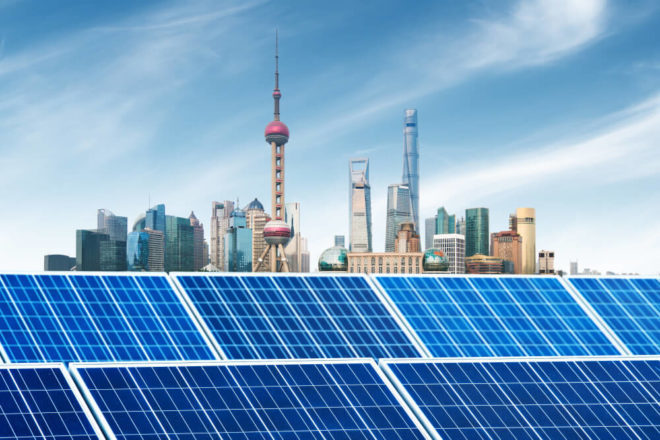

Despite having the largest installed electricity generation capacity of wind and solar power, China is unable to operate and utilise these resources fully due to technical constraints in the transmission networks and gaps in the regulatory framework for electricity trade between provinces. This new project by World Bank has been initiated with the objective to address these constraints and support the country’s overarching energy transition goals. These include a shift away from coal and increasing the share of non-fossil fuels in the primary energy consumption from the current 14.3% to 20% by 2030, and to over 50% by 2050.
“This project will help accelerate the on-going clean energy transition in China and contribute to the country’s emission reduction targets,” said Martin Raiser, World Bank Country Director for China. “By providing financing for battery storage and distributed renewable energy applications, the project will reduce curtailment of renewable energy capacity and thus encourage further investments into changing China’s energy mix. Parallel technical assistance will help improve the policy and regulatory framework for green energy technologies, thereby reducing risks and encouraging private investment.”
[related_post]
The Renewable Energy and Battery Storage Promotion Project will be implemented by Hua Xia Bank, a publicly listed commercial bank in China. The bank will provide co-financing of at least $450 million to achieve the development goals of the project. Technical assistance for policy and regulatory reforms, shaping appropriate technology and safety standards, and developing institutional capabilities will be financed by the Global Environmental Facility (GEF) and the Energy Sector Management Assistance Program (ESMAP).
“Hua Xia Bank has been a strong partner of the World Bank in expanding commercial financing for, and wider adoption of, clean energy technologies in China. We look forward to working with them to support small and medium enterprises to implement financially and technically well-structured battery storage projects with due regard to environmental and safety considerations,” said Peng Ximing, World Bank Senior Energy Specialist and project team leader.
This project is part of the World Bank Group’s September 2018 commitment to significantly scale up support to battery storage solutions globally through a $1 billion battery storage investment program. The program aims to help fast-track investments in battery storage, so it can be deployed affordably and at scale in middle-income and developing countries, including some of the fastest growing economies in the world.
The $1 billion in World Bank Group financing is expected to mobilize another $4 billion in concessional climate financing and public and private investments. The program aims to finance 17.5 GWh of battery storage by 2025 – more than triple the 4-5 GWh currently installed in all developing countries.
1. The mandate for blending Compressed Biogas (CBG) with natural gas has come into effect…
Andhra Pradesh is striving towards greening its energy sector with quite some speed. In a…
With an objective to bolster India’s green energy goals, a Tripartite Agreement has been signed…
The Union MNRE Minister Pralhad Joshi launched the Green Hydrogen Certification Scheme of India (GHCI)…
India’s energy conglomerate Bharat Petroleum Corporation Limited (BPCL) has commissioned a 5MW green hydrogen plant…
In a historical development, the European Space Agency (ESA) has successfully launched its pioneering ‘Biomass’…